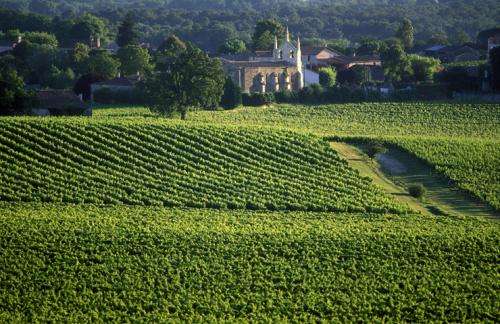Climate changes will produce wine winners and losers

In the not too distant future, your favorite French wine may not come from its namesake region or even from France!
Climate change is altering growing conditions in wine producing regions and in coming decades will change the wines produced there, in some cases shifting to new areas the growth of grape varieties long associated with regions further south, says leading climate scientist and wine expert Antonio Busalacchi (pictured right) of the University of Maryland.
"Climate change will produce winners and losers among wine growing regions, and for every region it will result in changes to the alcohol, acid, sugar, tannins, and color in wine," says Busalacchi, who directs the UMD Earth System Science Interdisciplinary Center and chairs the World Climate Research Programme's Joint Scientific Committee and the National Academy of Sciences/National Research Council Board on Atmospheric Sciences and Climate.
Busalacchi and research assistant Eric Hackert have analyzed climate change impacts on 24 of the world's major wine producing regions; providing snapshots of what conditions will be like at the middle and end of this century. Busalacchi notes that several Champagne houses already are looking at land in Sussex and Kent in southern England as potential sites for new vineyards because as climate warms the region is becoming more hospitable to quality grape growing. The soil type in the region, as seen in the white cliffs of Dover, is similar to the chalky substrate of Champagne, and the cost of land is 30 times less than in France.
"Vineyards in higher latitudes, at higher altitudes or surrounded by ocean will benefit from climate change with more consistent growing seasons and a greater number of favorable growing days," he says.
"These include the Rhine in Germany, U.S. states Oregon and Washington, the Mendoza Province of Argentina and New Zealand." says Busalacchi who comes from a family of restaurateurs, is an advanced sommelier and operates a wine and vineyard consulting firm.
On the other hand, Bordeaux (pictured left) and some other regions will suffer compressed growing seasons that yield unbalanced, low acid wines that lack complexity. South Africa and South Australia, likely will see declines in wine production due to severe droughts, according to Busalacchi. More generally, extreme events such as heat waves that shut down photosynthesis and hail storms that can ruin a chateau's annual production in a matter of minutes will become more commonplace.
In both warm and cooler regions, one result will be the same; wines will lose their traditional character.
"Taken to an extreme, a wine from the Left Bank of Bordeaux may move away from the classic aromas of cedar cigar box, blackcurrants and green pepper and more toward the full, rich, spicy peppery profile of a Chateauneuf-du-Pape from the Southern Rhone," says Busalacchi. "Given that most grapevines produce fruit for 25 to 50 years, grape growers and wine makers must consider the long term when determining what to plant, where to plant, and how to manage their vineyards."
Provided by University of Maryland



















